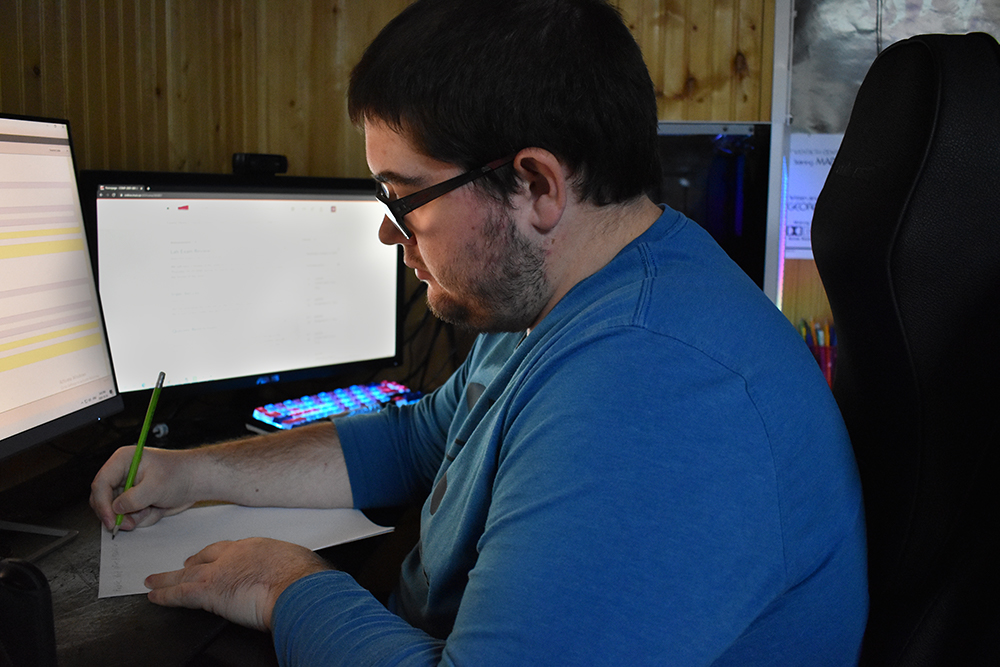Learning from home is causing students to be stressed out.

Kyle Curtis
Kicker News
Students are now six weeks into their first full semester of online schooling. And while college and university classes are always stressful, homeschooling has taken that to a new level.
When the COVID-19 pandemic hit Newfoundland back in March, the college and university were forced to shut down their campuses. As a result, students had no choice but to continue their education from home.
Not being on campus has caused problems for students.
“I just hang out with some friends whenever I can get together with them. I also have been playing video games and stuff just to take my mind away from everything.”
Memorial University has over 18,000 students each semester. At College of the North Atlantic’s main campus in St. John’s, it has an approximately 1,700 students every year.
On Sept. 9, all public school students went back to the classroom, however, most college and university students continued to do their courses online.
Justin Butler is in his second year of the computer science program at Memorial University in St. John’s. He finds taking classes online much more stressful than it would be if they were in a classroom setting.
“It’s more stressful because professors just post everything online and just leave it for you to do yourself,” said Butler. “You’re not just trying to do work and assignments, you also need to teach yourself.”
No one from Memorial University was available to comment as of deadline.
Ted Power, a guidance counsellor at College of the North Atlantic in the capital city, says students need to find a way to cope with the stress. One way to do this is by practicing time management.
“Time management when you are mindful of it, can help in a big way,” said Power. “You got to say to yourself ‘OK, I’m going to study for an hour then I am going to take a break.’”
He also believes that getting out of the house can help deal with stress.
“Make sure to remove yourself from that space, get up and go do something, don’t just sit down at the same computer and check your emails or the news on your breaks. Get up, go outside and get active because that can be very healthy for us,” said Power.
Butler says some professors aren’t being as helpful during this trying time when students need them the most. He says if they made themselves more available it would make online learning much easier.
“A [thought] that most everyone I speak with is sharing is just the feeling of isolation and struggle, more so struggle.”
Finding things to do, says Butler, outside of online learning environment takes the mind off the workload.
“I just hang out with some friends whenever I can get together with them. I also have been playing video games and stuff just to take my mind away from everything,” said Butler.
Butler worries he is not going to retain the knowledge of this semester. He feels like he’s teaching the content to himself and not learning it from his instructors.
A lot of students, says Power, are coming to him with similar issues.
“A [thought] that most everyone I speak with is sharing is just the feeling of isolation and struggle, more so struggle,” Power said. “The struggle with the online platform and communicating via email.”
Not seeing his classmates every day, says Butler, is one of the hardest things to deal with.
“The most stressful thing for me is submitting assignments because you are just doing the work and hoping the way you interpret something is the right way rather than bouncing your idea off a friend,” said Butler.




Awesome article. Keep up the great work, looking forward to reading the next one.